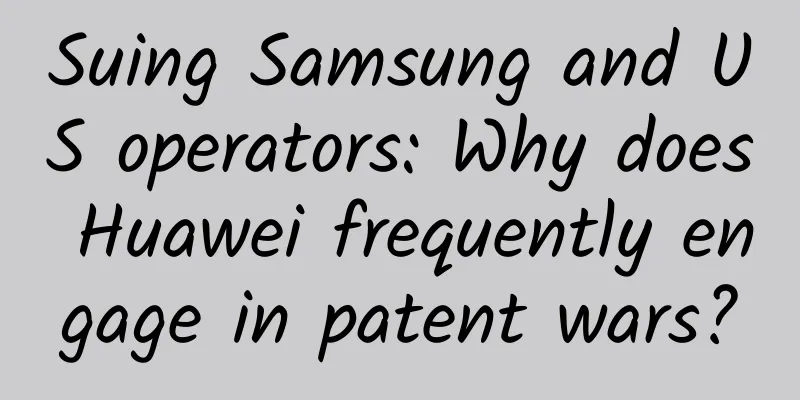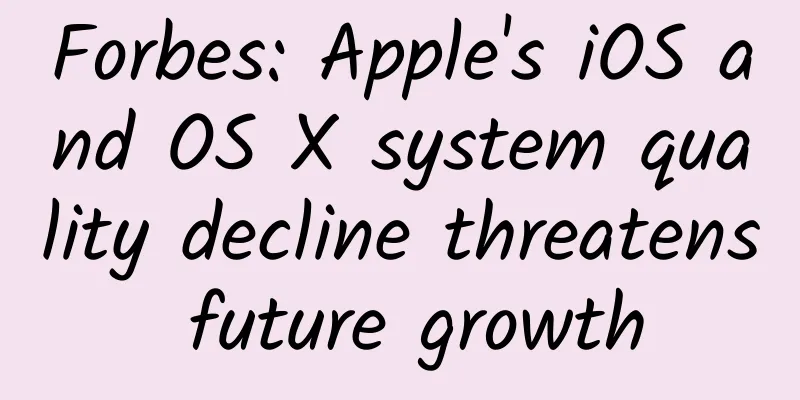Suing Samsung and US operators: Why does Huawei frequently engage in patent wars?

|
Not long ago, Huawei filed intellectual property lawsuits against Samsung in California, the United States and Shenzhen, China, demanding that Samsung compensate Huawei for its intellectual property infringement. These intellectual property rights include high-value patents related to communication technology and software used in Samsung mobile phones. Huawei's patent war does not stop there. Recently, Huawei has filed a patent lawsuit against T-Mobile, the fourth largest mobile operator in the United States. In the indictment submitted to the Eastern District Court of Texas, Huawei stated that T-Mobile is using Huawei's patent technology and has not signed a license agreement. Huawei contacted T-Mobile as early as June 2014 and asked the latter to sign a confidentiality agreement to start patent licensing negotiations, but T-Mobile refused to sign a confidentiality agreement and licensing negotiations. T-Mobile's reason was that it believed that the other party's patent licensing requirements violated the principles of fairness, reasonableness and non-discrimination, and therefore refused to reach a patent licensing agreement. In this case, T-Mobile agreed to discuss a licensing agreement, but ultimately rejected Huawei's proposal, accused Huawei of asking for an unfair and unreasonable price, and refused to sign the agreement. According to international practice, if a company's patent is considered a standard essential patent, it must be licensed on the basis of fairness, reasonableness and non-discrimination. But in reality these principles are vague and unreliable. In a similar case in China, Qualcomm filed a patent infringement lawsuit against Meizu in the Shanghai and Beijing Intellectual Property Courts, accusing Meizu of infringing Qualcomm's related patents involving 3G and 4G LTE wireless communications. But Meizu also gave the same reason: Qualcomm's patent licensing price was too high, which violated the principles of fairness, reasonableness and non-discrimination. The patent war launched by Huawei against T-Mobile in the United States currently seems to be more of an exploratory move, and there is no absolute certainty as to whether it is based on the principles of fairness, reasonableness and non-discrimination. Both parties are still vague and have different opinions. Huawei's pain over the years: Unable to deal with the US government and operators Huawei has recently launched patent wars frequently, and has even targeted US operators, because the US market is Huawei's pain. A 2012 US government report labeled Huawei and ZTE, two Chinese communications equipment providers, as security threats, saying that the equipment of these two companies could be used as a backdoor for Chinese espionage. The United States blocked Huawei's entry on the grounds of "national security" because they believed that Huawei was a communications equipment manufacturer with a Chinese military background, and that operators using their equipment would pose a threat to their national security. Huawei has repeatedly stated that this statement has no legal basis, but this report determined that Huawei could not sell telecommunications equipment to first-tier wireless operators in the United States. Because of this, Huawei has since focused on smaller wireless operators in the United States. As early as 2013, Huawei's executive vice president Xu Zhijun said at the annual analyst summit: "We are no longer interested in the US market." But his lack of interest is not a subjective wish, but an objective reality: Huawei actually wants to enter the US market, but it has to face reality. The reason why Huawei voluntarily gave up the US market is because it can't deal with the US government and operators. Since then, Huawei has continued to expand its operators in overseas markets and the US market, and has established cooperative relationships with 45 of the world's top operators, but has not been able to win the first-tier operators in the United States. This has almost become Huawei's heart knot, that is to say, the US market is the fortress that Huawei has most wanted to break through for many years, but it faces the greatest difficulty. But as Huawei is rising and has already ranked first in the domestic market, how to open up overseas markets and move towards the high-end market has become a very urgent task. To win the high-end market, it still has to return to the US market to establish its brand. Because if Huawei wants to compete with Apple in the future and further enhance its brand premium, it cannot be limited to the domestic market, and it must inevitably win brand recognition in the United States, the global center of science and technology and economy. Yu Chengdong also expressed the same idea at the Converge Technology Conference held in Hong Kong in May this year, that is, Huawei's goal is to surpass Samsung Electronics and Apple within five years. He also said that future growth will mainly come from high-end and high-quality business segments. If you want to lead in sales, you must lead in the high-end market. Then you have to improve your performance in the US market. Suing T-Mobile: Huawei is retreating to advance, and patents can be bargaining chips to promote Huawei's business in the United States How to improve performance in the United States and where to start is a long-standing problem. For Huawei, if it wants to compete in the international high-end market and enhance its brand value, it is better to adopt patent litigation than to come up with more innovative products at this stage. Huawei's annual patent licensing revenue has exceeded US$200 million. On the other hand, to enter the US market, it is also necessary to break down patent barriers. To some extent, Huawei believes that it is ready. Data shows that Huawei has 9,800 patents in the United States, of which 7,400 are communication technology patents and 2,200 are digital processing technology patents. Once the lawsuit begins, Huawei's patents can be recognized and the brand value of Huawei terminals can be enhanced overseas. Therefore, many people believe that compared with brand and technology cooperation, patent litigation is more conducive to Huawei's brand marketing in the United States, and is also more beneficial to Huawei's bargaining power with US operators. Therefore, Huawei launched a patent war against Samsung and US operators to show and demonstrate Huawei's strength to the outside world, and to imply that US operators still need to use Huawei's patents. Huawei and US operators are in a mutually beneficial relationship. If you break up, Huawei also has patent chips to make you uncomfortable. The patent lawsuit with T-Mobile reveals that Huawei's goal is to retreat in order to advance, to burn its bridges, and to use it as a bargaining chip in negotiations with the operator. It seems that all the circumstances indicate that Huawei's accumulation of patents and then continuous attacks may be related to Huawei's overseas strategy and global brand marketing, which is also the current strategic need. Patent wars must be fought, and there are inevitable reasons for it, in order to demonstrate strength and presence, otherwise it will be treated as a soft persimmon, and it is also a warning to foreign countries that the United States is not the only one who knows how to use patents to suppress opponents. But at the same time, this strategy may be too radical or the timing is inappropriate. From the perspective of the game between major powers, Huawei's strategy may arouse the other party's vigilance and then trigger a stronger backlash. Therefore, from the perspective of the needs of both the US market and Huawei, Huawei wants to enter the US market more than the United States needs Huawei. Although a Huawei spokesperson believes: "Litigation is the last way to resolve disputes, and it is also a common way in some cases." "Conquering" the United States has been put on the agenda: Huawei still needs more political wisdom Richard Yu once said that in Huawei's globalization strategy, "conquering" the United States has been put on the agenda. But what needs to be considered is whether Huawei has chosen the right time point? In other words, is there a correct strategy? Is it appropriate to adopt the same patent strategy against Samsung and the US operator T-Mobile? In the Western circle, patents are an indispensable means of competition between companies. As a competitor of Huawei, Samsung can use patent wars to slow down the pace of its competitors' attacks, but when it comes to US operators, there is more cooperation than competition. For example, in the Chinese market, it is understandable that the iPhone fights a patent war with domestic mobile phones, but if it wants to go to court with operators such as China Mobile, Apple will definitely calm down first. For example, among domestic Internet giants, there are many secret wars and struggles over patent infringements. However, many companies do not openly argue over the disputes. Instead, they hold the evidence in their hands and continue to maintain a cooperative relationship. Once they fall out with each other at some point in the future or the competition intensifies to the point of being a last resort, they will deal a fatal blow. In other words, they choose the right time to attack. Lei Jun once said that his philosophy of life is: make more friends and fewer enemies. For Huawei, only in this way can it be more conducive to the smooth advancement of its globalization strategy. It is undeniable that Huawei's frequent patent wars are also creating momentum in the global market, hoping to enhance its global brand influence, but on the other hand, Huawei's premature attack, from the perspective of the outside world's colored political vision, may show the deepening distrust between China and the United States, and also make the US market more vigilant against Huawei. The reason why the timing is wrong now is also because Huawei has not yet gained a firm foothold in the US market. Huawei has risen, but it is not yet strong enough to not need strategic allies and not rely on operators. But the reality that Huawei, which has risen in China, needs to face is that Huawei phones have no presence in the United States. According to the survey results of data research company comScore, Apple and Samsung are still the dominant players in the US market, accounting for nearly 70% of the market share. However, many of Huawei's flagship models cannot be launched in the US market. Huawei has been emphasizing for many years that it wants to compete with Samsung and Apple, but it obviously needs to maintain a good relationship with US operators, because 95% of smartphones in the US market are sold through operator channels. Of course, Huawei's purpose in launching a patent war is also here. Once the patent war with T-Mobile, the fourth largest operator in the United States, begins, if Huawei wins the lawsuit, it may make T-Mobile compromise and sign a licensing agreement with it. However, the US smartphone market is dominated by operators, and the operator market represented by T-Mobile cannot be underestimated. Therefore, it may also make it more difficult for Huawei to quickly achieve its goal of selling smartphones in the United States, just like Google's current difficulties in re-entering the Chinese market are also due to a lack of political wisdom. Therefore, in more cases, Huawei's future success requires the US market. Only by being a core driver or even a dominant position in globalization can it be highly tied to the dividends of globalization and promote large-scale global communication infrastructure investment and terminal sales. Huawei's patent war to enter the US market is also a risk Ren Zhengfei once said in his speech "Take Innovation as the Core Competitiveness and Strive for the Centennial Revitalization of Science and Technology of the Motherland": "As we gradually approach the limits of Shannon's theorem and Moore's Law, and the theory of large traffic and low latency has not yet been created, Huawei has felt confused and can't find a direction. Huawei is also exploring how to open up the US market, find a direction, and get out of the current period of confusion. The patent war initiated by Huawei is also walking on ice. In many cases, after years of legal proceedings, appeals, and counterclaims, a settlement or patent authorization is finally reached. If Huawei wins the case, it can use the other party's legal use of the other party's developed technology and intellectual property rights through a patent cross-licensing agreement with the fourth largest operator in the United States. Huawei can use this as a bargaining chip to let local operators allow its related businesses to enter the market. But if Huawei loses the case, it may lose the best opportunity to make friends with it and use the operator's channels to sell mobile phones, and even have more estrangement and distrust with the US operator level. To some extent, Huawei's patent war is also an adventure. Therefore, in order to break open the door to the United States, Huawei should have more flexible ways besides relying on patents, and should choose the right targets to attack. We know that Japan has its own closed island effect, and its electronic products are closed systems, which makes it difficult for foreign forces to enter. Later, Japanese operators were willing to actively accept and introduce iPhones and vigorously promote them. It can be seen that the product itself is the most essential competitiveness. At present, how to deal with American operators through the strategy of using both sticks and bread is also a test of Huawei's balancing skills and political wisdom. Otherwise, it is very likely to go the opposite of what it expected, causing Huawei's American dream to be stranded again. As a winner of Toutiao's Qingyun Plan and Baijiahao's Bai+ Plan, the 2019 Baidu Digital Author of the Year, the Baijiahao's Most Popular Author in the Technology Field, the 2019 Sogou Technology and Culture Author, and the 2021 Baijiahao Quarterly Influential Creator, he has won many awards, including the 2013 Sohu Best Industry Media Person, the 2015 China New Media Entrepreneurship Competition Beijing Third Place, the 2015 Guangmang Experience Award, the 2015 China New Media Entrepreneurship Competition Finals Third Place, and the 2018 Baidu Dynamic Annual Powerful Celebrity. |
<<: “Pokemon GO” is popular, but is this the right approach to commercializing AR?
Recommend
Zhu Kezhen: The weather is always changing, but your heart remains unchanged
Liu Qian and Zhang Yingxian Editor's Note Rec...
Is Android becoming the new Windows?
[[139070]] During my career as a PC analyst, I fo...
How much does it cost per month to rent a computer room with 1TB bandwidth server?
How much does it cost to rent a computer room wit...
How to make expensive products sell well? Have you used these 9 methods?
Having interest and demand does not mean that you...
Super practical "The detours you must not take when making Douyin" The trader instructor teaches you the dry goods without reservation
Super practical! Don't take the detours when ...
Yiche Ranking: Sales data of the world's top 20 automobile markets in September 2023
Yiche.com recently released a list of the best-se...
Apple's new iPhone production this year is 65 million, the lowest in four years
At 1 a.m. Beijing time on September 11, Apple wil...
6 major misunderstandings about the live streaming sales trend
There is no doubt that live streaming sales is a ...
The successful development of the mobile phone self-destruct function actually solved Ma Huateng's concerns 6 years ago
Nowadays, mobile phones have already become an in...
18 most classic user growth operation cases on the Internet
Part 1: Growth Hacking and Related Concepts 1. Gr...
Analysis of competitors of Xigua Video, Tik Tok, and Kuaishou!
01 Market Analysis 1.1 Market Definition There is...
360 Privatization: Zhou Hongyi Dreams of the Top of the Internet
[[138275]] The privatization of 360 has been plan...
Review: Sharing of event operation planning process
Operational activities are one of the common meth...
What should I do if there are too many credit inquiry records? This is how it is handled
How to deal with too many credit inquiry records?...
A problem that needs to be avoided when using JSONObject
About the author: Bao Xiehao, Xiaomi MIUI departm...









